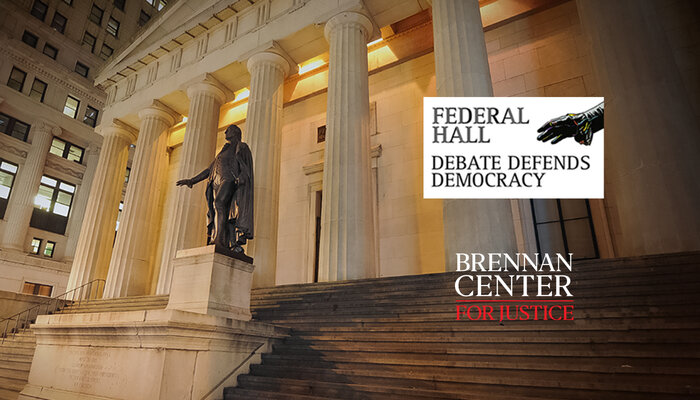Twice in this century the Electoral College has blocked the winner of the popular vote from becoming president. Some believe this system is an essential bedrock of our republic, dividing power among the states. But abolishing the Electoral College has attracted increasing attention in recent years. This could be accomplished through a constitutional amendment or by the states alone: the National Popular Vote Interstate Compact would render the Electoral College obsolete.
With the presidential election around the corner, it’s worth considering the past, present, and future of the Electoral College. Whose voices does it elevate, and whose does it diminish? To what extent did racial animus drive its creation? And how likely is it that presidential elections in the future will be decided by the popular vote?
CNN Senior Political Analyst John Avlon will explore these questions with University of Massachusetts, Amherst political science professor Amel Ahmed, law professor and Brennan Center Fellow Wilfred Codrington III, and author and New York Times columnist Jesse Wegman. New York Times reporter and pro bono historian for Federal Hall’s Conservancy Sam Roberts and Brennan Center President Michael Waldman will introduce this program.
This is the third installment in Federal Hall’s Debate Defends Democracy series.
SPEAKERS:
- Amel Ahmed, Associate Professor of Political Science, University of Massachusetts, Amherst
- Wilfred Codrington III, Fellow, Brennan Center for Justice; Assistant Professor of Law, Brooklyn Law School; Author, The People’s Constitution: 200 Years, 27 Amendments, and the Promise of a More Perfect Union (forthcoming in 2021)
- Jesse Wegman, Member, New York Times Editorial Board; Author, Let the People Pick the President: The Case for Abolishing the Electoral College
- MODERATOR: John Avlon, Senior Political Analyst, CNN; Author
